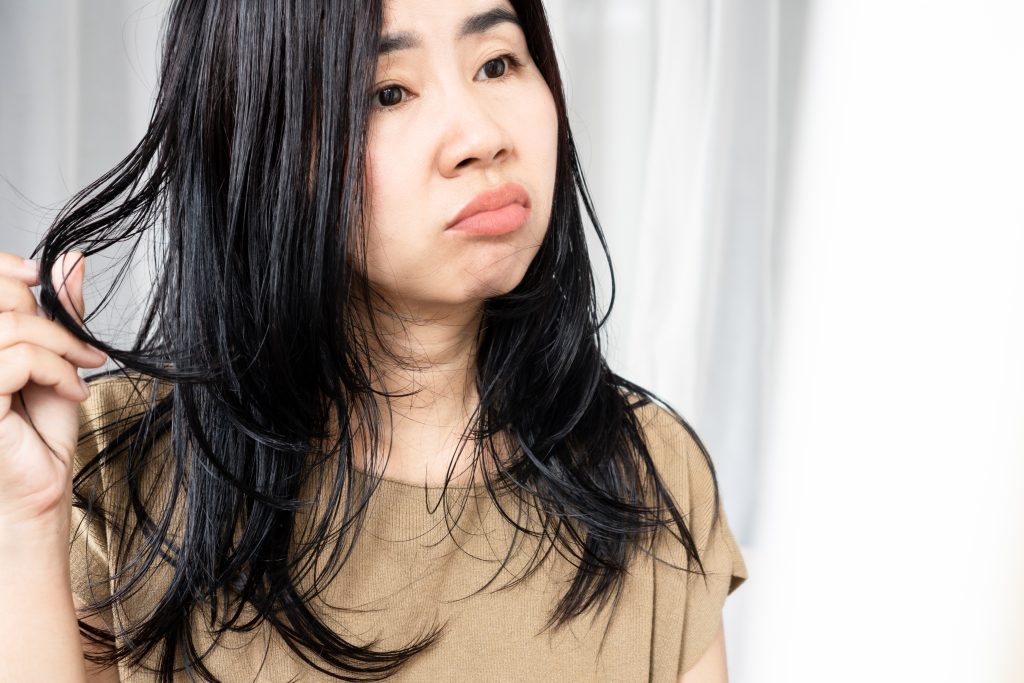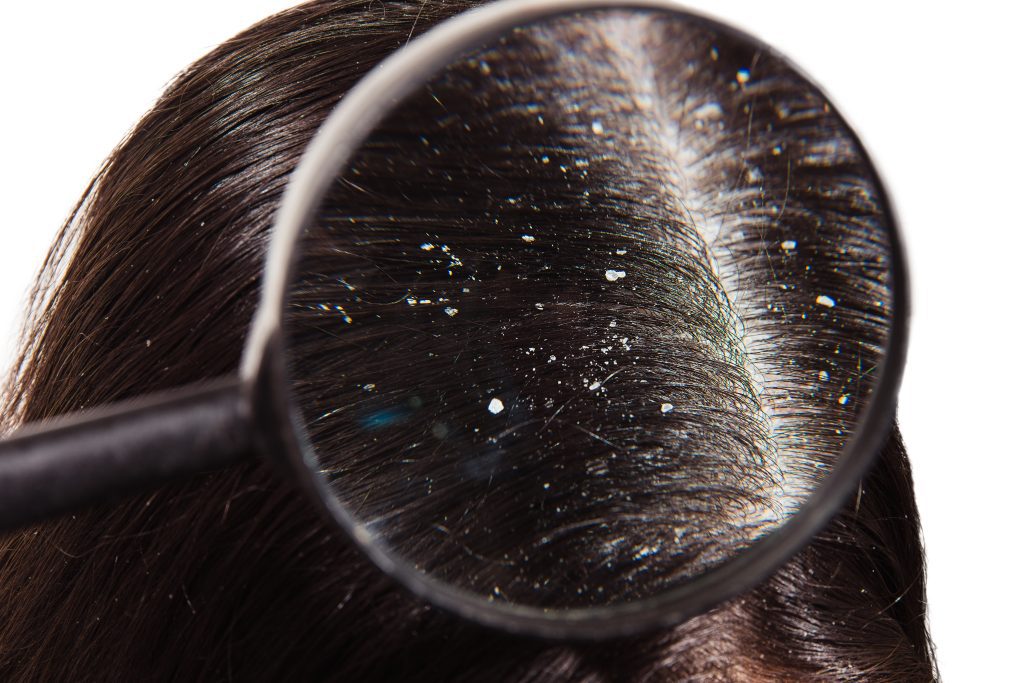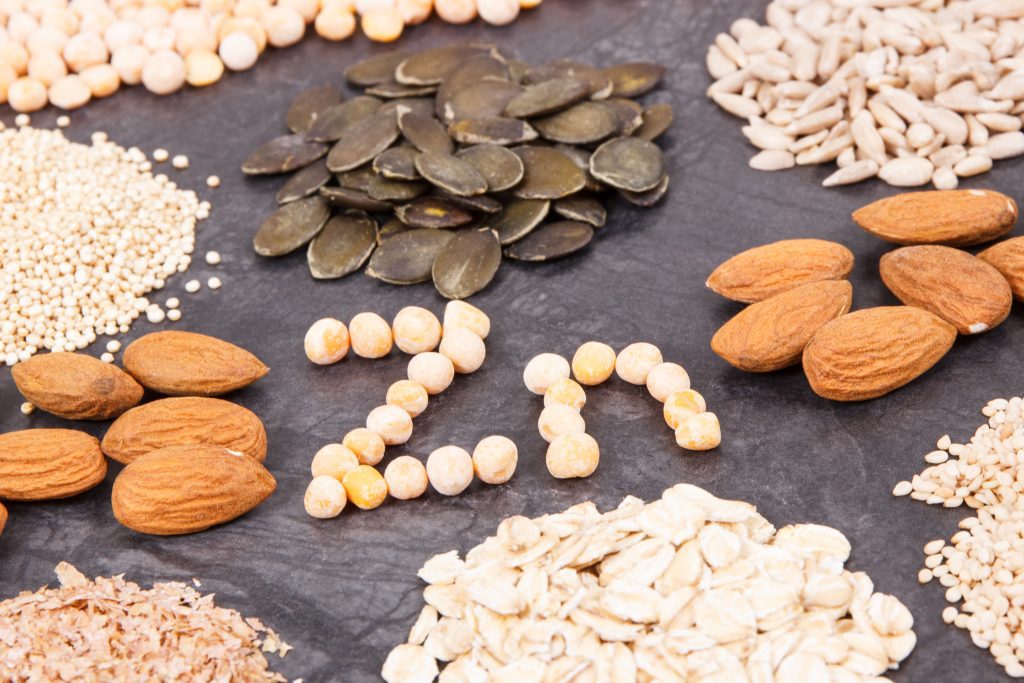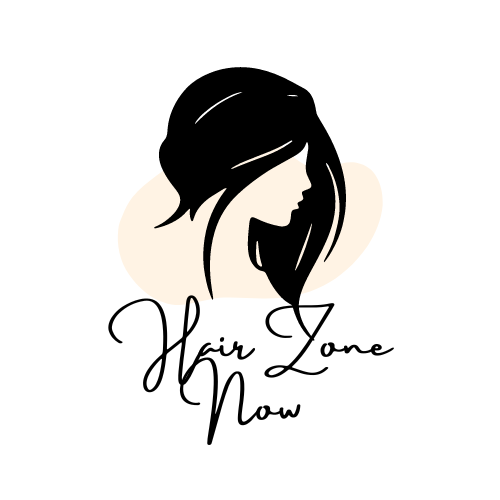What to Do if You Have Oily Hair
As you rush to prepare for your Zoom call, a sinking feeling washes over you, and you realize that your hair looks more like it’s been doused in grease than carefully styled. Oily hair is something people worldwide struggle with. It’s not just about appearance; it can affect self-esteem. However, amidst the frustration, effective solutions are available to combat this issue and regain control over your hair’s oil production.

Understanding the root causes of oily scalp and hair is crucial in addressing the problem effectively. Several factors contribute to excess oil production on the scalp. Inadequate hair care practices, such as infrequent shampooing or improper cleansing, can lead to oil and product residue buildup. Hormonal fluctuations, often beyond our control, can also increase oil production. Overwashing the hair may seem like a solution, but paradoxically, it can strip the scalp of its natural oils, leading to rebound oil production as a compensatory mechanism.
Another common culprit behind oily scalp is the presence of dandruff. A fungus naturally residing in the scalp called Malassezia Globosa causes dandruff. It feeds on oil and breaks it down into byproducts that irritate the scalp and lead to flaking. When the scalp overproduces oil, it gives the fungus an ideal environment to thrive, resulting in dandruff. Therefore, oily scalp and dandruff often go hand in hand, necessitating a comprehensive approach to address both issues simultaneously.

Dietary adjustments are an effective strategy for managing oily scalp and hair. While diet alone may not cure dandruff, it can help regulate oil production and promote scalp health. For instance, reducing sugar intake can prevent spikes in insulin levels, which can trigger increased oil secretion. Increasing consumption of essential fatty acids, such as omega-3 and omega-6 fatty acids, can help reduce inflammation and regulate sebum production.
Furthermore, incorporating onion and garlic into your diet can be beneficial due to their anti-fungal properties. Garlic, in particular, contains allicin, a compound known for its antimicrobial properties. While applying garlic directly to the scalp may yield more direct benefits, consuming it can still support overall scalp health. On the other hand, dairy products may exacerbate oily scalp due to their hormone content, so reducing dairy intake may be advisable.
Ensuring adequate zinc, biotin, and vitamin intake is essential for maintaining scalp health and regulating oil production. Zinc, in particular, has antioxidant properties that aid in skin healing. Biotin, a B vitamin, is crucial in zinc absorption and can contribute to overall scalp health. Vitamin B6 is another nutrient that can help regulate sebum production and alleviate dandruff symptoms.

In addition to dietary modifications, a proper hair-care routine is essential for managing oily scalp and hair. A shampoo specifically formulated for oily scalp can effectively remove excess oil and dirt while maintaining scalp health. Products containing ingredients like menthol or neem can provide additional benefits, such as cooling the scalp and combating dandruff. Regular shampooing, combined with gentle massaging motions, can help stimulate blood flow to the scalp and promote healthy hair growth.
While an oily scalp may be a recurring problem for many, it is not insurmountable. By understanding the underlying causes of oily scalp and making appropriate dietary and lifestyle adjustments, it is possible to effectively manage oil production and promote scalp health. Incorporating nutrient-rich foods, reducing sugar and dairy intake, and staying hydrated can all contribute to a healthier scalp environment. Combined with a suitable hair-care routine and targeted products, these strategies can help individuals maintain healthy, revitalized hair and regain confidence in their appearance.
